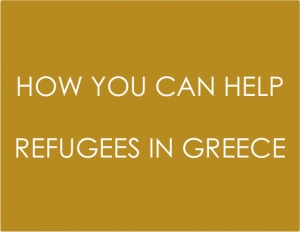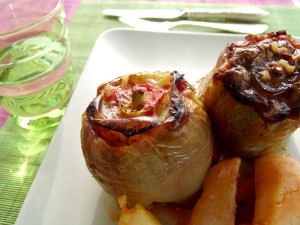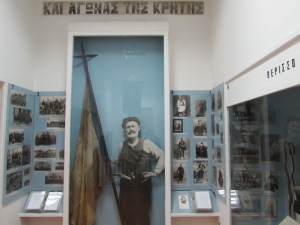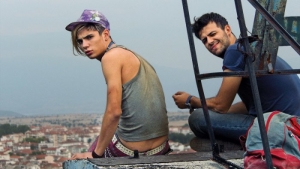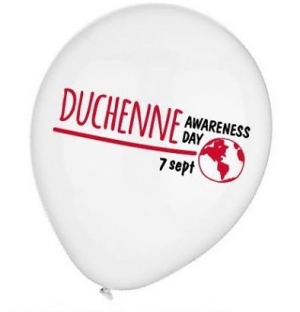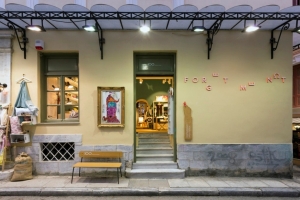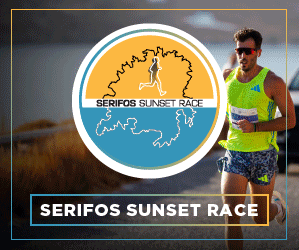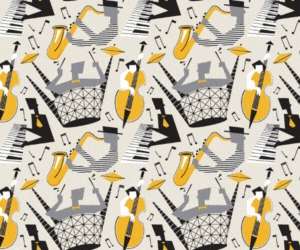LIFE & CULTURE
XpatAthens
Thursday, 10 September 2015 07:00
Linguistic Tourism - A New Way Of Travel?
Let’s be honest! What are your first thoughts when planning your holidays?
Where will I stay, where will I eat, how the local life looks like and of course, how will I communicate!!
No worries, that’s all what Glossopolis provides you with!
Glossopolis is an e-learning platform providing Greek language courses for people who want to visit the place, speak the language of the locals instead of using some typical scholar phrases and wish to have a touch with the local element instead of visiting the touristic side of the place.
How we do that? When you sign in the platform you watch a map of a language city ‘’Glossopolis in Greek’’ and you just click on the places you wish to communicate in (hotels, taxis, restaurants, bars, etc). This gives immediate access to all the educational content teaching how to communicate (text, audios, grammar exercises, videos, cultural and linguistic tips) but there is also access to geolocated ads of local business Glossopolis cooperates with.
To read more, please visit: Family Goes Out
Published in
Greek Language & Culture
Tagged under
Thursday, 10 September 2015 07:00
Greek Engineer Among 30 Finalists To Travel To Space
Greek engineer and activist Ioanna Fotopoulou from Thessaloniki, Greece was chosen as one of the 30 finalists who will have the chance to travel to space as part of the Rising Star Programme for young leaders from across the world.
At this stage the competition is tough, but the 26-year-old engineer is well prepared. In 2013 she was among 40 people who spoke at the annual world summit organized by the non-profit organization One Young World, in Johannesburg, South Africa. One Young World brings the youngest and brightest minds in the world together to create positive change. In 2014 she was chosen as speaker again at the summit which occurred in Dublin Ireland.
The Rising Star Programme sent out more than 20,000 invitations to young people, through One Young World, the young activist said. The organizers will select a person to travel to space with two-seater shuttle XCOR Lynx, to convey the message travelling to space is not that far away.
Ioanna is an engineer and since 2008 she has been actively involved in the empowerment of Civil Society. She was working for almost 2 years in Serbia and Bosnia Herzegovina, promoting and advocating for two programs supporting the rights of Roma and stateless people.
To read more, please visit: Greek Reporter
Published in
Greece In The News
Tagged under
Wednesday, 09 September 2015 07:00
All The More Say "I Do" In Greece
Greece is steadily growing into a leading destination for those ready to tie the knot, with all the more resorts and boutique hotels across the country and on its isles ready to offer everything from legal arrangements, booking the officiant/venue/priest/, finding the church, arranging the flowers, dinner and reception, organizing the cake, music, dancers, fireworks, photographer and videographer, accommodation, transport, excursions, and much more.
The latest feature in British daily The Telegraph is saying that “wedding fantasies do not come more idyllic than those you can plan in Greece”.
In a recent story titled “Weddings in Greece: Romantic Locations to say ‘I Do’”, Greece is a “nuptial paradise” where unique destinations offer everything from stunning locations and perfect ceremonies to delectable confectionery and, what else? Seclusion, whether on a hideaway island, on the beach, in a vineyard, aboard a boat or in a fairytale castle.
To read more, please visit: Greek Travel Pages
Published in
Local News
Tagged under
Tuesday, 08 September 2015 11:09
Refugees In Greece ~ How You Can Help!
With such a huge need for aid and assistance among the refugees in Greece, we've created this article in order for the community to know how and where they can help first-hand.
We've done our best to collect accurate information and although some of these initiatives are by organizations, do keep in mind that many of them have been organized by individuals in the community. The information below has been gathered via various social media pages and we'd like to thank everyone for making these posts available. (Note: The information has been outlined in random order.)
We've done our best to collect accurate information and although some of these initiatives are by organizations, do keep in mind that many of them have been organized by individuals in the community. The information below has been gathered via various social media pages and we'd like to thank everyone for making these posts available. (Note: The information has been outlined in random order.)
If you would like to add an initiative to this article or send us an update, please send a detailed email to ideas@xpatathens.com.
Individual Initiatives:
A) St Paul's Anglican Church in Athens: Contact Fr Malcolm Bradshaw - anglican@otenet.gr
B) To send donations to Thessaloniki: Please send parcels to Craig Wherlock, Oikopolis, Ptolemaion 29a Thessaloniki.
To send parcels to Lesvos: Please send parcels to Eric Kempson, Eftalou, Molyvos, Lesvos, Greece, 81108.
* All donations small or large are appreciated. Baby milk, diapers, wipes, sanitary pads, soap, track suit bottoms for men and women and underwear are all needed.
C) Donations Needed - Small easy to carry activity kits for refugee children. Contact: Eileen Botsford Mmc at activitykitsforrefugeekids@gmail. Also see: https://www.facebook.com/ebmmc/posts/10156049897995541:0. New drop off collection box set up thanks to our volunteers and Women's Care Medical Group Practice: Sorou 3-5 Marousi - Map: http://bit.ly/1WvUv8q
D) From the Greek Forum for Refugees ~ items needed and collection addresses:
Items Needed:
Long lasting food:
Rusks, biscuits, water, evaporated milk, juice, oil, meat, pasta, rice, pulses, evaporated milk, juice, tomatoes, canned, sugar, etc
Clothes: mostly for men and children.
Baby products: baby milk, bottles, creams, wipes, diapers, hats-Sport Shoes
Sheets / Towels
Toiletries: toilet paper, sanitary napkins, toothpaste, toothbrushes
Medical supplies: gauze, bandages, normal sera, antihistaminic ointments, antiseptic, adhesive dressings for wounds, cooling spray for wounds.
Locations and hours you can send your offers and contact numbers:
1. Greek Forum of Refugees
Contact info: 2130282976, 6948408928
You can send or bring the your offers directly to our office Gravias 9-13 Athens ZIP: 10678 from 11-5 pm
2. Solidarity4all. Contact Info: 2103801921. You can send or bring any of your offers that are included in the list above, EXCEPT from clothing, to our offices 74 College, Athens, from 10 to 5 pm
3. KYADA. Contact Info: 2105246516. You can send or bring your offers directly to our office Sofokleous & Pireos 35, Athens from 9-3 pm
E) The Charitable Arm of the Orthodox Church called Apostoli, has organised two "Banks" for the collection of Pharamaceuticals and Toiletries. From there they will be distributed to the areas of most need and where they are already in action.
Pharmaceuticals and medicines should be brought to: Social Pharmacy of Apostoli-Municipality of Kallithea Andromachis 100 (Ανδρομάχης 100) Kallithea. Contact Persons: Mrs. Ioanna Kolotourou & Mrs. Antigoni Tsortou Tel. 210-9532712
Items required include: Medicines for diabetes (for example Glucophage tablets) or Medicines for stomach (for example Losec or penrazol type) plus items you would take for travelling - eg Paracetemol, Imodium, Cetavlon, Iodine, maybe cough sweets - Soothers (or the Greek equivalent), medicines for children, plasters etc.
Toiletries should be taken to: Apostoli HQ. 8, Hera str. & 37, Despos Sechou str. GR-11743 Athens (Neos Cosmos) Nearest metro Sygrou-Fix. Contact Person: Dr. Vasileios Meichanetsidis, JCD
Items needed include: Toothbrushes and Toothpaste, Shampoo, Soap, Wipes for Adults and Children, Handwash, Shower Gel, Disposable Nappies, Feminine Hygiene products, etc.
Groups & Organizations:
Note, many of these groups are in Greek, but you may contact them in English in order to get involved.
Amurtel Hellas
This group works in the camps with pregnant and birthing women as well as mothers and infants.
Contact email: amurtel.gr@amurtel.org
Greek Forum of Refugees
http://www.refugees.gr/en/
https://www.facebook.com/Greekforumofrefugees
Refugee Air - Let Them Fly
http://refugeeair.org/
Αλληλεγγύη στους πρόσφυγες - Solidarity with Refugees in Greece
https://www.facebook.com/pediontouareos?fref=ts
Helping Hands Greece
http://www.helpinghands.gr/index.php/en.html
https://www.facebook.com/Helping-Hands-Athens-Refugee-Ministry-126394204211/timeline/?ref=hl
Helping Hands Greece
http://www.helpinghands.gr/index.php/en.html
https://www.facebook.com/Helping-Hands-Athens-Refugee-Ministry-126394204211/timeline/?ref=hl
Helping hands of Rhodes/Χέρια Βοηθείας της Ρόδου
https://www.facebook.com/helpinghandsofrhodes?fref=ts
Help for refugees in Molyvos (Lesvos)
https://www.facebook.com/HelpForRefugeesInMolyvos?fref=nf
RefugeesWelcome GR —Ανακοινώσεις
https://www.facebook.com/RefugeesWelcomeGR
Praksis
https://www.facebook.com/ngopraksis?fref=ts
Baby Feat
https://www.facebook.com/babyfeat?fref=ts
UN Refugee Agency
http://www.unhcr.org/cgi-bin/texis/vtx/home
The Salvation Army In Greece
http://www.salvationarmy.gr/
Medecins Sans Frontieres ~ Doctors Without Borders
http://www.msf.gr/node/3053
International Federation of Red Cross ~ Hellenic Red Cross
https://www.ifrc.org/en/what-we-do/where-we-work/europe/hellenic-red-cross/
CrowdFunding & Donation Websites:
Rain Ponchos For Refugees
https://www.indiegogo.com/projects/rain-ponchos-for-refugees#/
YouCaring ~ Aid to Children of Syria
https://www.youcaring.com/victims-of-war-428474#.Ve0o4O2VevJ.facebook
UN Refugee Agency ~ Syria Crisis
http://donate.unhcr.org/international/syria
Crowrise ~ Fundraiser for Julien Marios
https://www.crowdrise.com/1525
If you would like to add an initiative to this article or send us an update, please send a detailed email to ideas@xpatathens.com.
Published in
Local News
Tagged under
Tuesday, 08 September 2015 07:00
Stuffed Peppers With Minced Meat And Rice
As we head into autumn, out come the warming traditional Greek recipies. Check out this one for stuffed peppers, a very popular Greek recipie.
Ingredients
- 6 green or red peppers
- 1 1/2 cup olive oil
- 250 gr minced meat
- 6 heaped tablespoonfuls of rice
- 1 chopped onion
- 1 grated eggplant
- 1 grated zucchini
- 1/2 cup white wine
- 2 large tomatoes, chopped or grated
- Allspice at the tip of the spoon
- 1/2 cup chopped parsley
- 1/3 cup bread crumbs
- salt and pepper
- 3-4 potatoes
Method
Use peppers that are neither too small nor too large. They should be similar in size, so they will cook at the same time. Wash and dry them. With a sharp knife cut off the top. Scoop out the seeds. Do not throw away the top, because you will need it to cover the filling.
Put ½ of the olive oil in a pan and sauté the minced meat with the onions, grated eggplant and zucchini, stirring and breaking up the lumps of meat.
When they have browned lightly, add the rice and let it sauté for 4 minutes. Add the wine and let it simmer until it evaporates. Then add about ¾ of the pulp of the tomatoes, a glass of water, the parsley, salt and pepper and let the mixture simmer gently for about 10 – 15 minutes.
Make sure that the mixture is not too dry at the end of the cooking time. There must be about 2 cups of liquid, so that the stuffing in the peppers will have enough liquid to cook nicely. Taste the mixture and adjust the seasonings.
To read more, please visit: Cooking In Plain Greek
Also see the alternative recipe with soya mince.
Also see the alternative recipe with soya mince.
Published in
Greek Food & Diet
Tagged under
Monday, 07 September 2015 07:00
Eleftherios Venizelos Museum - Athens
Who was Eleftherios Venizelos? Born in Crete in 1864, he is arguably the grandfather of Modern Greece. A hugely influental figure, he is responsible for the modernization and expansion of the country. At the time, he was both loved and loathed. He followed a pro-allied foreign policy during the First World War, which conflicted with that of the pro-German king who wished the country to remain neutral.
So where is the museum? The Greek authorities have tried their hardest to hide and not draw attention to it in any shape or form! The museum is cunningly disguised behind a building covered in a profusion of colourful flowers and ivy in a bulding in Eleutherias Park by Megaron Concert Hall, with just a small sign outside to announce its presence.
The museum contains books, photographs and other personal items of this great Greek figure, but no translations into English.
To read more, please visit: Dave's Travel Pages
Published in
City Discovery
Tagged under
Monday, 07 September 2015 07:00
"Xenia", Greece's Submission To The 2016 Academy Awards
Greek film Xenia, directed by Panos Koutras is Greece’s official submission for the Best Foreign Language Film category at the 2016 Academy Awards.
After the films triumphal journey in theaters across the world, namely in Italy, France, Germany, Spain, Serbia, Croatia, Mexico and soon the United States and the United Kingdom, Xenia has finally made it to the Oscars.
The decision to submit Koutras’ film at the American Film Academy was taken by the Greek Ministry of Culture Committee that sent the film in the first round of selection for films that will represent this year’s global production at the 88th Academy Awards.
Xenia is a film about two teen brothers crossing the country to find their Greek father after their Albanian mother passes away. Their goal is to ensure their Greek citizenship.
To read more, please visit: Greek Reporter
Published in
Greece In The News
Tagged under
Monday, 07 September 2015 07:00
Raising Awareness Of Duchenne's Disease
The second World Duchenne Awareness Day is set to take place on Monday, September 7, and is being marked at the offices of Greece’s Muscular Dystrophy Association (MDA Hellas) in Victoria Square, downtown Athens. The event, organized by parent and patient associations, aims to spread awareness about this devastating form of muscular dystrophy.
Duchenne muscular dystrophy (DMD) is one of the most common fatal genetic disorders, which affects on average one in every 3,500 newborn boys worldwide. It is caused by errors in the dystrophin gene, the longest gene in the human body. Boys with DMD gradually lose mobility and are wheelchair-bound by the age of 12. In the next period it destroys breathing and heart muscles. The condition carries a life expectancy of 25-30 years and has no current cure.
To mark the day, 500 red balloons will be released after 7 p.m. to represent the 500 boys and men currently living with DMD in Greece.
To read more, please visit: ekathimerini
Published in
Local News
Tagged under
Friday, 04 September 2015 10:48
Forget Me Not ~ Take Home A Contemporary Piece Of Greece
It may be 'back to school' and 'καλο χειμωνα' for many of us, but a 40 degree heatwave and a city full of tourists sure makes it feel otherwise! With the end of summer still a fair distance away, I must admit to being rather tired of the 'I am Sparta' t-shirts and the ubiquitous 'blue and white fridge magnets' lining the streets of Plaka. Does anybody buy these things? I've had a constant stream of visitors over the past months, and unless I'm mistaken, there have been no blue and white fridge magnets passing between them...
But seriously, what's a tourist to do with her eager-to-be-spent euros? What else should we buy for souvenir gifts for those not lucky enough to visit Greece with us?
Well, there are many options to be sure - replica pottery, leather sandals (in fact not a bad choice!) key chains, or perhaps your name on a tiny piece of rice (oh yes.). But for the discerning traveller - and the even more discerning local - there is Forget Me Not, a fantastic little shop selling fantastic little gifts and souvenirs of Athens and Greece - with a decidedly hip eye towards modern design and all things 'cool'. I am sure that our in-the-know readers are familiar with this shop - but in case you're not.
Forget Me Not is located at 100 Adrianou Street, in a house where the Greek hero Kolokotronis once lived, in the midst of 'I am Sparta' and knock-off luggage shops. You can't miss the yellow painted walls and iconic wooden bench outside the door. There are two levels - the lower level is just outside, around the corner. The main street level sells a range of design items that are sure put you in the 'souvenir hall of fame' category. The lower level continues the theme, with lots of Athens-chic clothing and accessories.
Contemporary Greek design, clothing you actually want to wear, unique memorabilia and decidedly cool gifts. It's all here. Even the New York Times has taken notice.
Let me be clear - this is not a marketing piece in the least. I just think this is one super-cool shop, and a great example of what 'today's Athens' should feel like. I wish more retailers would take notice.
And with an e-shop offering worldwide delivery and free delivery within Greece - everyone on your list can have a taste of the contemporary side of Greece.
Until next week,
Jack
Forget Me Not
100 Adrianou Street, Plaka
Published in
My Week In Athens
Tagged under
Thursday, 03 September 2015 13:51
Interview With Dean Karnazes Of The Navarino Challenge
Trekking through challenging terrains across the globe, enduring hours of arduous running in hundreds of marathons, breaking numerous athletic records, and constantly pushing his personal limits, Dean Karnazes has rightfully earned his title as the Ultra Marathon Man. Beyond long distance endurance running, the Greek-American athlete also enjoys competing in triathlons, is a successful entrepreneur, best-selling author, philanthropist, and dedicated father.
In 2013, Karnazes took on another title as the official ambassador of the annual Navarino Challenge, which takes place in Arcadia and Messinia, Greece. The three-day sporting event brings together a diverse range of participants in an effort to raise awareness on the issue of childhood obesity, while promoting the benefits of the mediterranean diet. Karnazes speaks with Portes Magazine about the upcoming Navarino Challenge, to take place September 11 through 13, and offers some insight on his athletic career.
What is unique about the Navarino Challenge as a sporting event?
To me it’s a very progressive event, and I’ve done hundreds of different types of running events across the globe. For Greece, this an event that is ahead of its time, and it’s an event conceived for mass participation. The core concept is similar to the original notion of the Ancient Olympics, which served to bring all of the citizenry out in a celebration of fitness and health. The [Ancient Olympics] were not only for elite athletes vying to win a gold medal. All of the participants received a laurel or a Greek wreath, so to me the Navarino Challenge is approachable to anyone regardless if you were an elite runner used to running great distances, or just someone who is going to run their very first challenge. And that’s something that appealed to me from the very beginning, making sure the challenge is not so intimidating so that many people are welcome and encouraged to take part.
How would you compare this sporting challenge to past events or courses in which you have participated?
I don’t know why, but there is something magical about the Navarino Challenge. I think in part people are inspired by me because they think, well here is a guy who runs hundreds of kilometers at a time and he’s out here running a more casual 10 kilometers with me. I think that inspires people, but I think people fail to recognize how much I’m inspired by seeing people who are pushing themselves to their very limit. For me, going out and running a half marathon is not extraordinary, and while it doesn’t necessarily come easy to me it’s less difficult for me than for others. But in this event, people really rise to the occasion and prove to themselves that they are better than they think they are and can go further than they thought they were able.
As the ambassador of the Navarino Challenge, what advice would you give to someone who is participating in a marathon or athletic endurance event for the first time?
Start from the ground up and invest in a good pair of shoes. Then I would say try starting your training program by running a set number of minutes instead of a set number of feet or miles. When you first start out you might just say I’ll commit to running just five minutes straight while pacing yourself, and then work up that way and try to expand that to ten or fifteen minutes as days go by. You’ll find that’s much easier than setting mile goals and much simpler in terms of keeping track of your goal.
You referenced earlier the concept of the Ancient Olympics is reflected in the Navarino Challenge. Can you share with us what ancient Greek wisdom or ideal you think might still apply to athletes and athleticism today?
The Greek ideal of ‘arete’ suggests goodness comes from finding a perfect balance of the mind, body, and spirit. And I think in the Western world unfortunately we have really neglected our body. I mean the Greeks embraced physicality and the balance between mind and body as being important. For example, in Ancient Greece gymnasiums were not only a place of mental learning, but also physical learning, and I really embrace that idea, because when your body is sharp your mind is sharp, and that’s a very ancient kind of notion that the Greeks honored. Other things the ancient Greeks taught us was to dare, to question everything and to go beyond what you think are your limitations. As they used to say “he who dares wins” so in practice I try to be fearless and explore new things, and not be afraid to fail.
In your athletic career, you have participated in countless running challenges across the world. If you had to choose, what would be your ideal natural terrain to run in?
I really enjoy running around Greece. I know it sounds funny to say but it almost feels like a homecoming to me. When I run around Athens, and especially when I run around Messinia, Arcadia, or Laconia or some of the more rural areas, you don’t often see people running down the street. And I can’t tell you how many people stop and just ask me if I want some food or if I want a ride, or they just congratulate me, and it’s really magical to see that you can break through to people in that way. If you think about it, it’s kind of a foreign thing for them to be driving down a road that they’ve been driving down for 20 or 30 years and all of a sudden they see some guy running, and he’s healthy and enjoying it and he’s Greek. I’ve run on all seven continents twice and I’ve run in some of the most exotic and beautiful places in the world, and still running in Greece to me has a certain magic that nowhere else does.
To read this interview in full, please visit: Portes Magazine
In 2013, Karnazes took on another title as the official ambassador of the annual Navarino Challenge, which takes place in Arcadia and Messinia, Greece. The three-day sporting event brings together a diverse range of participants in an effort to raise awareness on the issue of childhood obesity, while promoting the benefits of the mediterranean diet. Karnazes speaks with Portes Magazine about the upcoming Navarino Challenge, to take place September 11 through 13, and offers some insight on his athletic career.
What is unique about the Navarino Challenge as a sporting event?
To me it’s a very progressive event, and I’ve done hundreds of different types of running events across the globe. For Greece, this an event that is ahead of its time, and it’s an event conceived for mass participation. The core concept is similar to the original notion of the Ancient Olympics, which served to bring all of the citizenry out in a celebration of fitness and health. The [Ancient Olympics] were not only for elite athletes vying to win a gold medal. All of the participants received a laurel or a Greek wreath, so to me the Navarino Challenge is approachable to anyone regardless if you were an elite runner used to running great distances, or just someone who is going to run their very first challenge. And that’s something that appealed to me from the very beginning, making sure the challenge is not so intimidating so that many people are welcome and encouraged to take part.
How would you compare this sporting challenge to past events or courses in which you have participated?
I don’t know why, but there is something magical about the Navarino Challenge. I think in part people are inspired by me because they think, well here is a guy who runs hundreds of kilometers at a time and he’s out here running a more casual 10 kilometers with me. I think that inspires people, but I think people fail to recognize how much I’m inspired by seeing people who are pushing themselves to their very limit. For me, going out and running a half marathon is not extraordinary, and while it doesn’t necessarily come easy to me it’s less difficult for me than for others. But in this event, people really rise to the occasion and prove to themselves that they are better than they think they are and can go further than they thought they were able.
As the ambassador of the Navarino Challenge, what advice would you give to someone who is participating in a marathon or athletic endurance event for the first time?
Start from the ground up and invest in a good pair of shoes. Then I would say try starting your training program by running a set number of minutes instead of a set number of feet or miles. When you first start out you might just say I’ll commit to running just five minutes straight while pacing yourself, and then work up that way and try to expand that to ten or fifteen minutes as days go by. You’ll find that’s much easier than setting mile goals and much simpler in terms of keeping track of your goal.
You referenced earlier the concept of the Ancient Olympics is reflected in the Navarino Challenge. Can you share with us what ancient Greek wisdom or ideal you think might still apply to athletes and athleticism today?
The Greek ideal of ‘arete’ suggests goodness comes from finding a perfect balance of the mind, body, and spirit. And I think in the Western world unfortunately we have really neglected our body. I mean the Greeks embraced physicality and the balance between mind and body as being important. For example, in Ancient Greece gymnasiums were not only a place of mental learning, but also physical learning, and I really embrace that idea, because when your body is sharp your mind is sharp, and that’s a very ancient kind of notion that the Greeks honored. Other things the ancient Greeks taught us was to dare, to question everything and to go beyond what you think are your limitations. As they used to say “he who dares wins” so in practice I try to be fearless and explore new things, and not be afraid to fail.
In your athletic career, you have participated in countless running challenges across the world. If you had to choose, what would be your ideal natural terrain to run in?
I really enjoy running around Greece. I know it sounds funny to say but it almost feels like a homecoming to me. When I run around Athens, and especially when I run around Messinia, Arcadia, or Laconia or some of the more rural areas, you don’t often see people running down the street. And I can’t tell you how many people stop and just ask me if I want some food or if I want a ride, or they just congratulate me, and it’s really magical to see that you can break through to people in that way. If you think about it, it’s kind of a foreign thing for them to be driving down a road that they’ve been driving down for 20 or 30 years and all of a sudden they see some guy running, and he’s healthy and enjoying it and he’s Greek. I’ve run on all seven continents twice and I’ve run in some of the most exotic and beautiful places in the world, and still running in Greece to me has a certain magic that nowhere else does.
To read this interview in full, please visit: Portes Magazine
Published in
People
Tagged under





